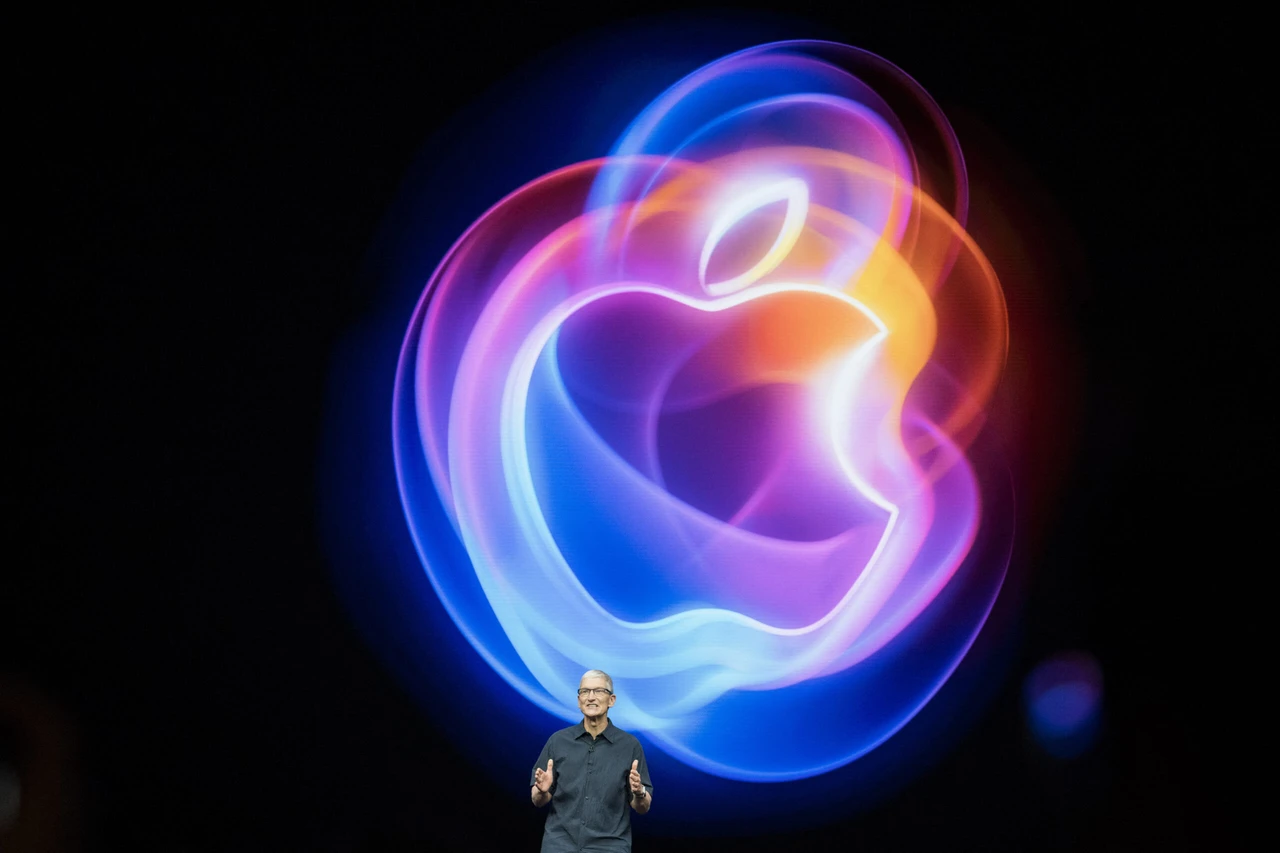Apple unveils iPhone 16, embracing AI revolution in battle for market share
 Apple CEO Tim Cook speaks during Apple's "It's Glowtime" event in Cupertino, California, September 9, 2024. (AFP Photo)
Apple CEO Tim Cook speaks during Apple's "It's Glowtime" event in Cupertino, California, September 9, 2024. (AFP Photo)
Apple announced on Monday the launch of its latest iPhone, designed with generative artificial intelligence at its core. The new iPhone 16 aims to boost sales and reinforce the company’s position in the competitive tech landscape.
“We are thrilled to introduce the first iPhones designed from the ground up for Apple Intelligence and its breakthrough capabilities,” said Apple CEO Tim Cook at an event held at the company’s headquarters in Silicon Valley.
Apple, which recently reported $39 billion in iPhone sales last quarter, relies on the device for approximately 60% of its overall revenue. The iPhone remains a critical entry point for users into Apple’s broader ecosystem, which includes services like the App Store and Apple TV, sectors that are becoming increasingly important to the company’s growth.
The release of the iPhone 16 follows a period of declining sales, as consumers have been holding onto their older models for longer than in previous years. The introduction of generative AI features is expected to reignite interest in Apple’s flagship product.
“This iPhone 16 release is all about Apple Intelligence and the unleashing of the consumer AI Revolution through Cupertino,” said Dan Ives, an analyst at Wedbust, referencing Apple’s headquarters. “In essence, Cupertino will be the gatekeeper of the consumer AI Revolution.”
Apple Intelligence, which Cook first introduced in June during the company’s annual developers conference, is a suite of AI-driven software features designed to enhance the user experience across all Apple devices. At the event, Apple also announced a partnership with OpenAI, the company behind ChatGPT, as part of its AI strategy.
“For years, artificial intelligence and machine learning have been essential in delivering so many of the features and experiences you love,” Cook said. “In June, we launched Apple Intelligence, our powerful new personal intelligence system, which will have an incredible impact.”
In its current iteration, Apple Intelligence offers features such as AI-powered image editing, translation, and creative touches in messaging. However, it stops short of the more advanced AI developments promised by companies like OpenAI and Google.
Despite this, industry experts anticipate that software developers will soon begin creating applications and services specifically designed to harness the generative AI capabilities of the new iPhone. This, in turn, is expected to drive sales for the tech giant.
At the event, Apple also unveiled new models of its Apple Watch and AirPods, both of which are set to incorporate AI-powered capabilities. These devices will likely take full advantage of the enhancements made to Siri, Apple’s digital assistant.
Apple’s announcement comes on the heels of Google’s AI-infused Pixel 9 smartphone launch last month. Although Google’s Pixel phones hold a relatively small share of the global smartphone market, the company is positioning its AI features as a practical tool for users, a contrast to the “coming soon” promises that have defined much of the AI industry.
Samsung, Apple’s main competitor in the smartphone market, has also incorporated AI into its devices, further intensifying the battle for consumer loyalty as the companies race to lead in the growing field of artificial intelligence.



